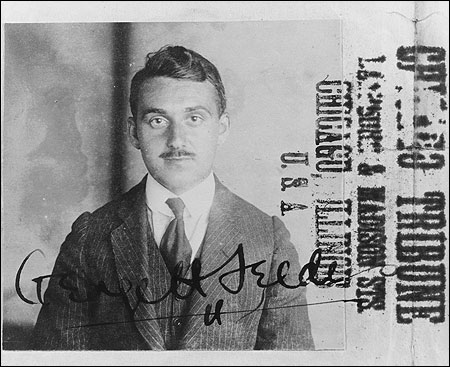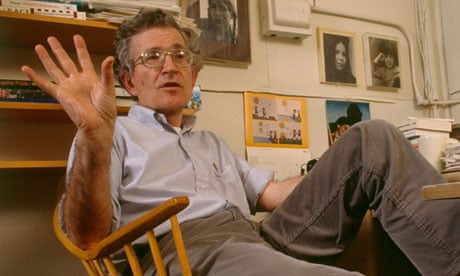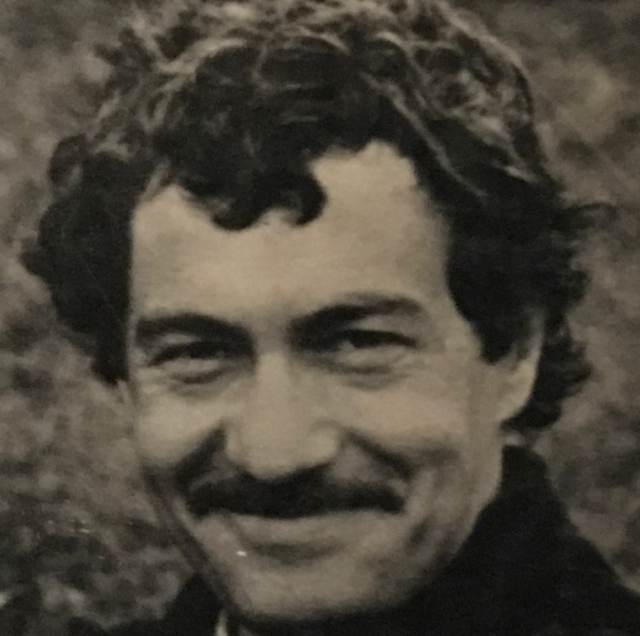Some critical media wisdom which has inspired the Up Cripple Creek Report.
“One of the guaranteed zones of silence in our news is news about the news industry itself.” – Ben Bagdikian, interviewed in Tell the Truth and Run, 2006
“The most sacred cow of the press is the press itself.” – George Seldes

In discussing newspaper truth and untruth the point to make, it seems to me, concerns integrity, and intentions, and human frailty. One man makes an honest mistake but another may repeat the falsehood either because a propagandist pays him or because the propaganda fits the views or prejudices to which he is pledged. Newspaper truth is not a question of how many angels can stand on the head of a needle, or how many are dead in a wreck or a battle, but it remains a question of the intentions of all the men and women who have to do with the presentation of news.
The suspicions of laymen have never been answered by the press. Newspapers, upholding the right of criticism as a road to freedom, oppose all criticism of themselves…like kings, pretend they can do no wrong. I wish they were right.
George Seldes, Freedom of the Press, 1935
“My personal feeling is that citizens of the democratic societies should undertake a course of intellectual self-defense to protect themselves from manipulation and control, and to lay the basis for more meaningful democracy.” – Noam Chomsky, Necessary Illusions, South End Press, 1988, Preface

“Propaganda is to a democracy what the bludgeon is to a totalitarian state.” – Noam Chomsky
I think it only makes sense to seek out and identify structures of authority, hierarchy, and domination in every aspect of life, and to challenge them; unless a justification for them can be given, they are illegitimate, and should be dismantled, to increase the scope of human freedom. That includes political power, ownership and management, relations among men and women, parents and children, our control over the fate of future generations (the basic moral imperative behind the environmental movement, in my view), and much else. Naturally this means a challenge to the huge institutions of coercion and control: the state, the unaccountable private tyrannies that control most of the domestic and international economy, and so on. But not only these. That is what I have always understood to be the essence of anarchism: the conviction that the burden of proof has to be placed on authority, and that it should be dismantled if that burden cannot be met.
– Noam Chomsky, May 1995 interview
“The worst forms of tyranny, or certainly the most successful ones, are not those we rail against but those that so insinuate themselves into the imagery of our consciousness, and the fabric of our lives, as not to be perceived as tyranny.” – Michael Parenti
“There is no such thing as unbiased news. All reports and analyses are selective and inferential to some inescapable degree – all the more reason to provide a wider ideological spectrum of opinions and not let one bias predominate. If in fact we do consider censorship to be a loathsome danger to our freedom, then we should not overlook the fact that the media are already heavily censored by those who own and control them. The very process of selection allows the cultural and political biases and class interests of the selector to operate as a censor. Some measure of ideological heterodoxy could be achieved if public law required all newspapers and broadcasting stations to allot substantial portions of space and time to a diverse array of political opinion, including the most progressive and revolutionary. But given the interests the law serves, this is not a likely development.” – Michael Parenti, Democracy for the Few, 1988, p. 170

“When treating political events at home and abroad, the media rather consistently share the counter-revolutionary anti-Communist perspective and assumptions of the Pentagon, the State Department, and the multinational corporations, staying within the limits of a fairly narrow political orthodoxy. Despite an occasional expose, and for all the talk about “investigative journalism,” the media, both in their entertainment and feature sections and their news coverage and analysis, propagate conventional values, cooperate with government officials in withholding information from the public, have almost nothing to say about the more damaging aspects of the corporate politico-economy, refrain from any examination of fundamental precepts upon which policy is based, and regularly and uncritically disseminate distorted and fabricated information about countries with leftist governments. By omission and commission, complicity and docility, the media seldom stray from the ideological fold. Far from being the independent “watchdogs of democracy,” they are among the most representative products of the existing politico-economic system.” – Michael Parenti, Power and the Powerless, 1978, p. 149
“If the press cannot mold our every opinion, it can frame the perceptual reality around which our opinions take shape. Here may lie the most important effect of the news media: they set the issue agenda for the rest of us, choosing what to emphasize and what to ignore or suppress, in effect, organizing much of our political world for us. The media may not always be able to tell us what to think, but they are strikingly successful in telling us what to think about.
Along with other social, cultural, and educational agencies, the media teach us tunnel vision, conditioning us to perceive the problems of society as isolated particulars, thereby stunting our critical vision. Larger casualties are reduced to immediately distinct events, while the linkages of wealth, power, and policy go unreported or are buried under a congestion of surface impressions and personalities. There is nothing too essential and revealing that cannot be ignored by the American press and nothing too trivial and superficial that cannot be accorded protracted play.
In sum, the media set the limits on public discourse and public understanding. They may not always mold opinion but they do not always have to. It is enough that they create opinion visibility, giving legitimacy to certain views and illegitimacy to others. The media do the same to substantive issues that they do to candidates, raising some from oblivion and conferring legitimacy upon them, while consigning others to limbo. This power to determine the issue agenda, the information flow, and the parameters of political debate so that it extends from ultra-right to no further than moderate center, is if not total, still totally awesome.”
– Michael Parenti, Inventing Reality, 1986, p. 22